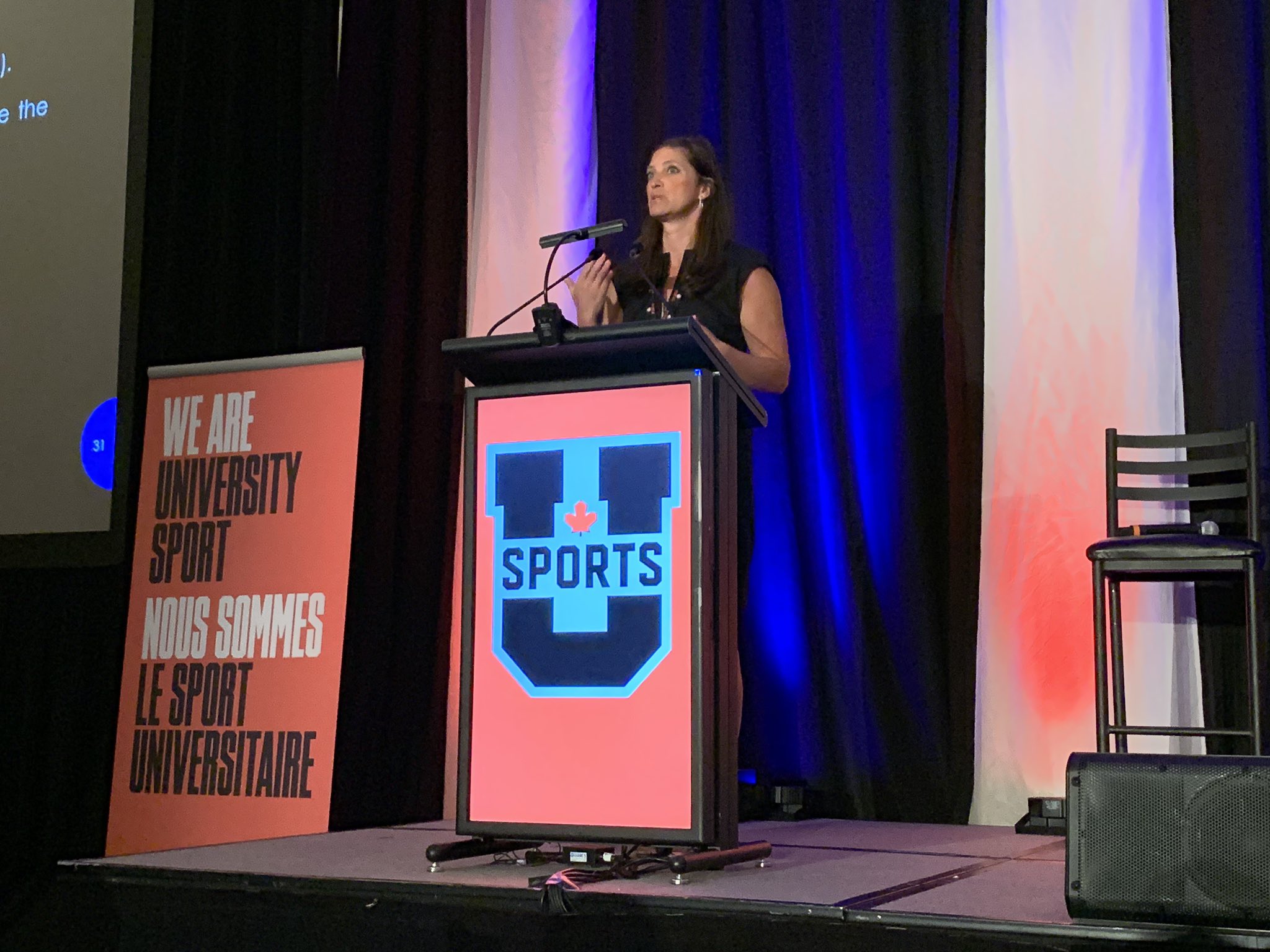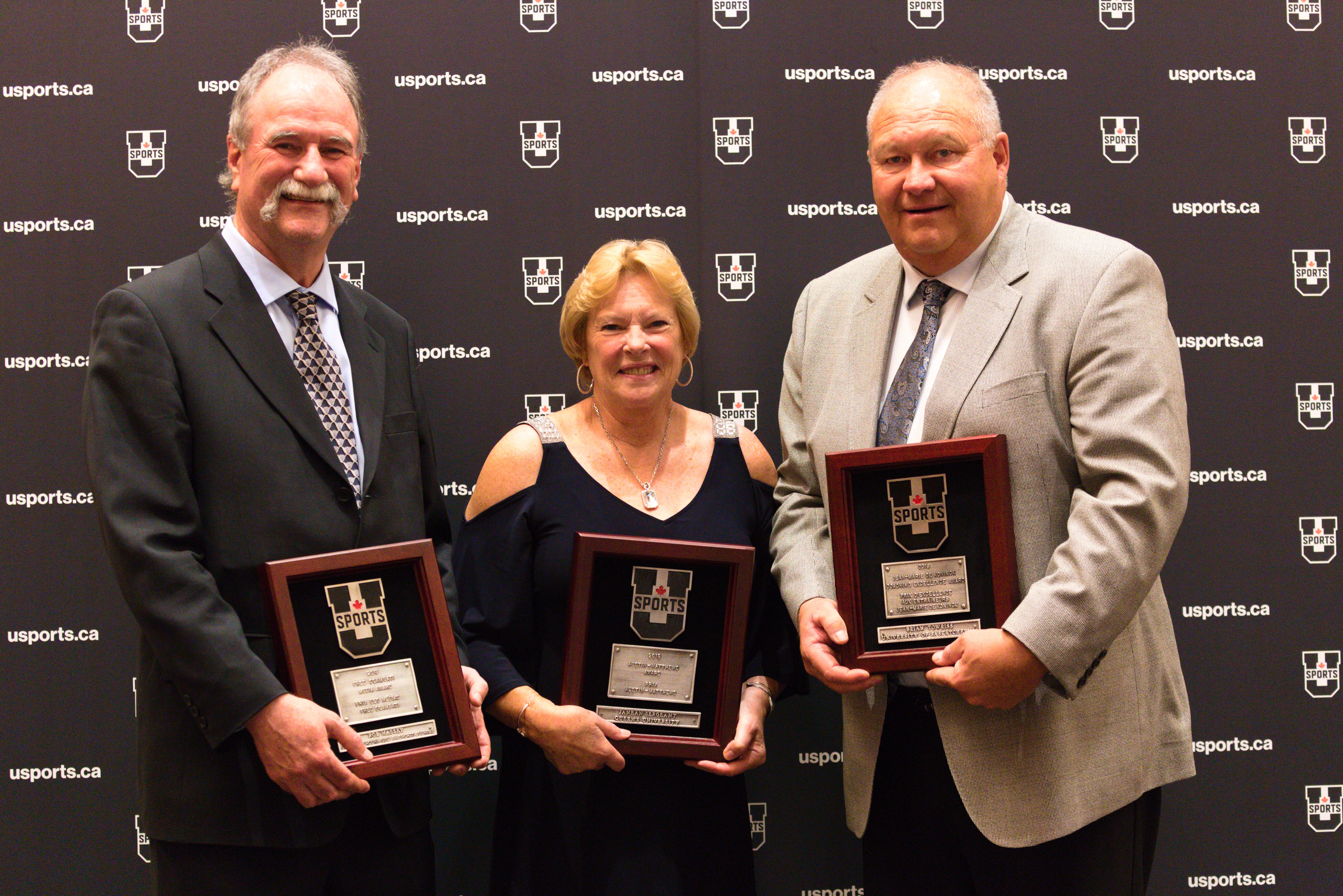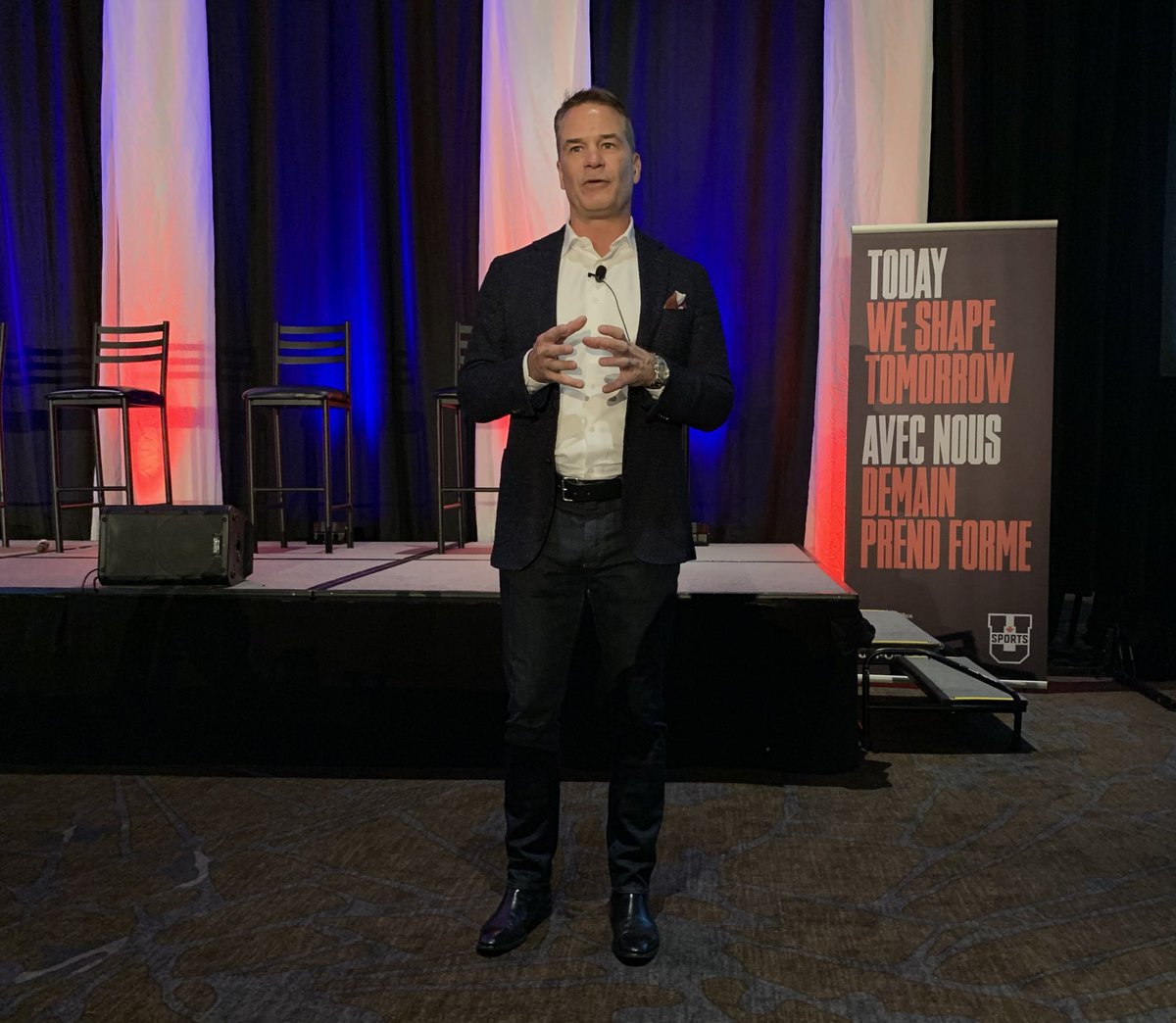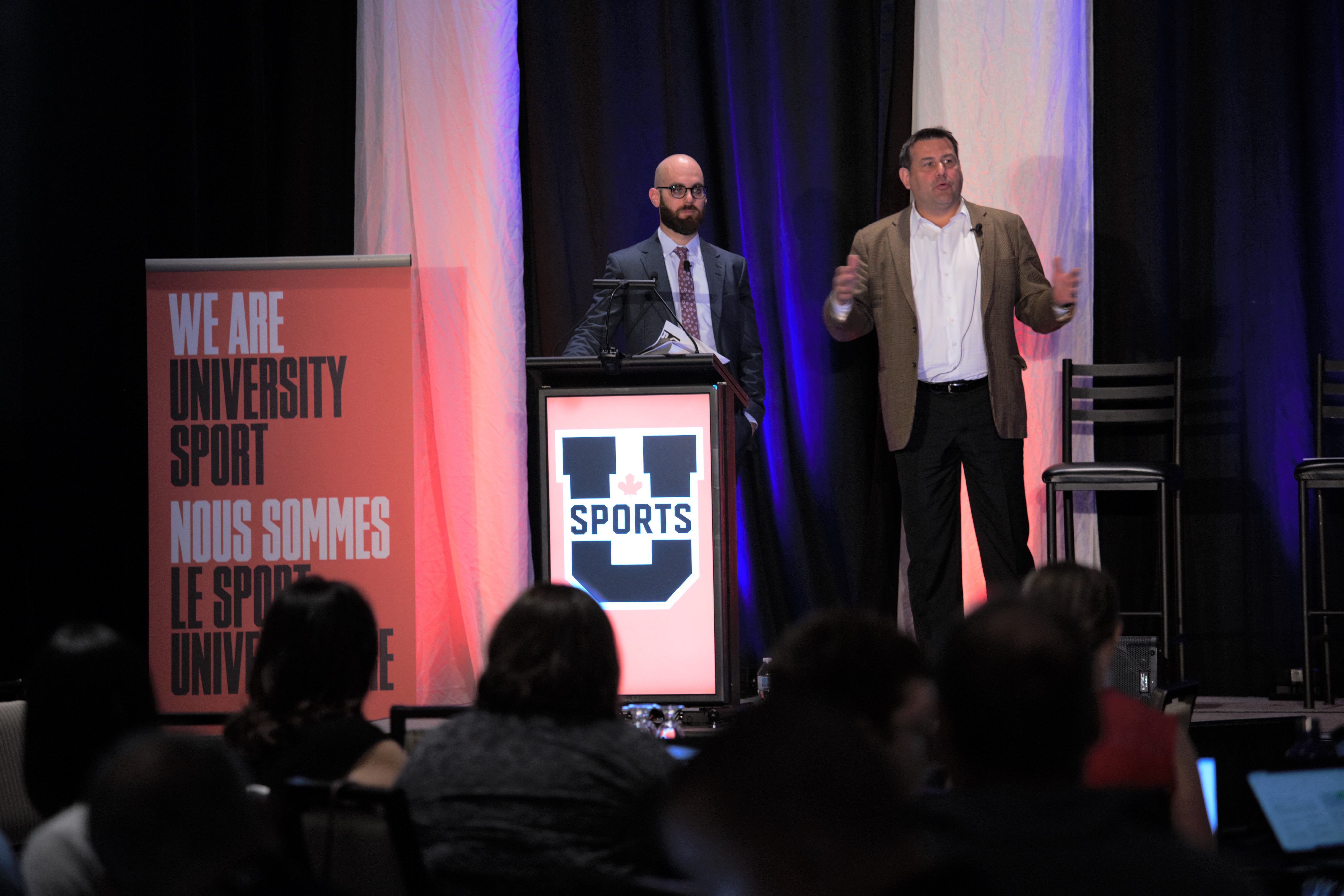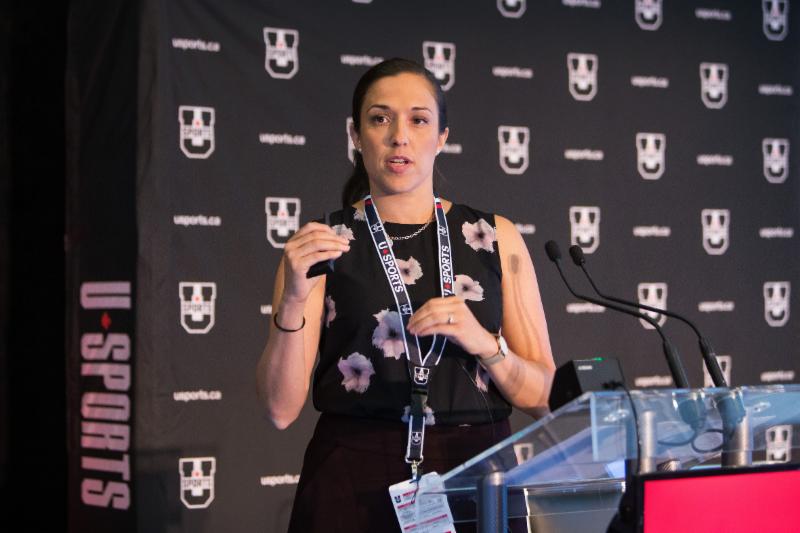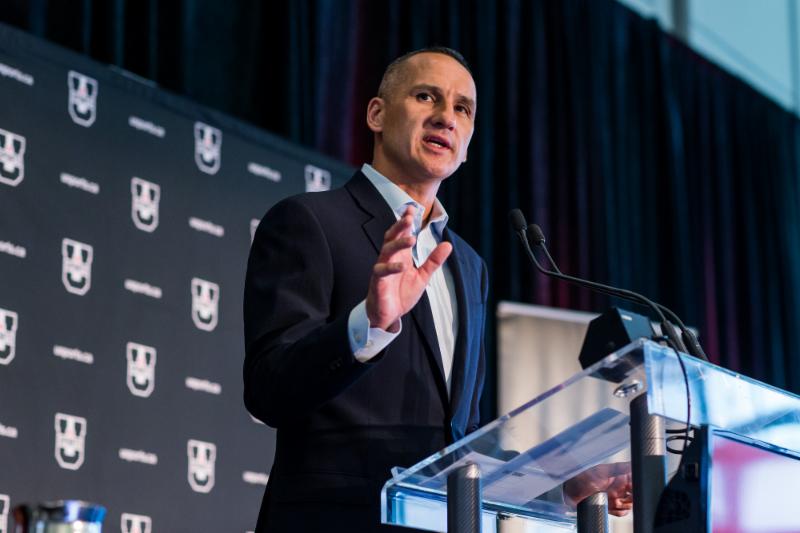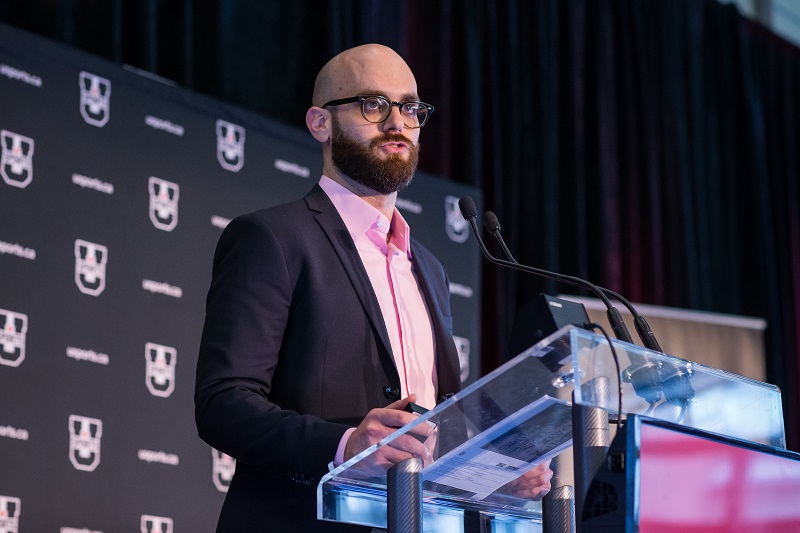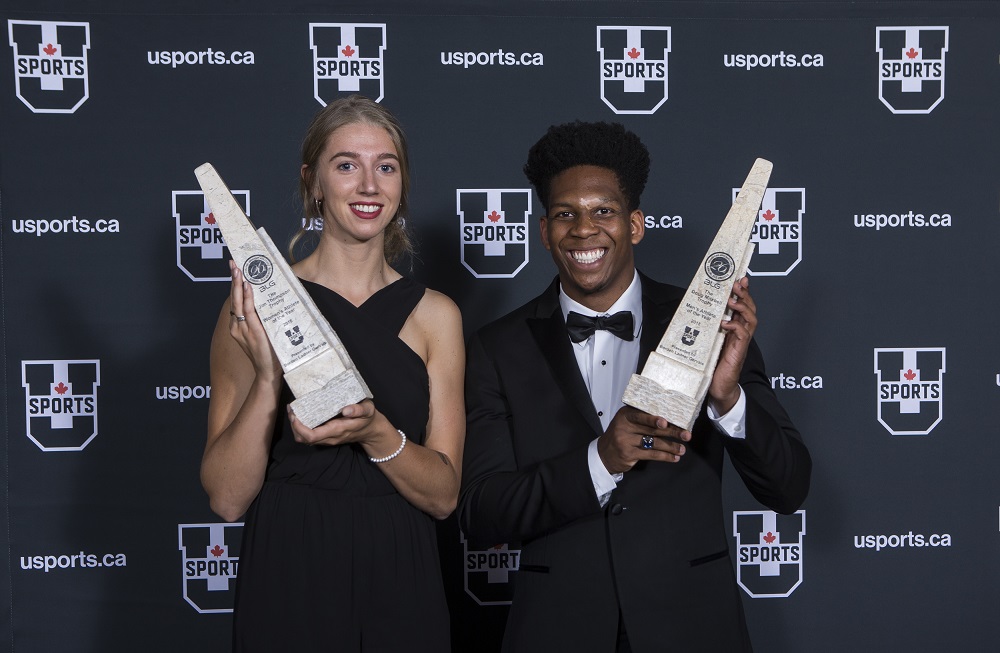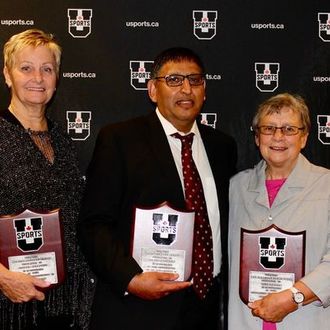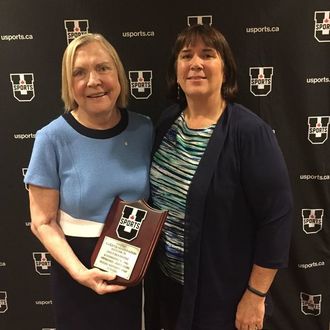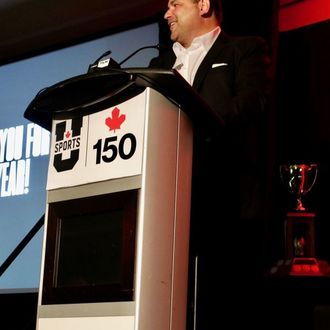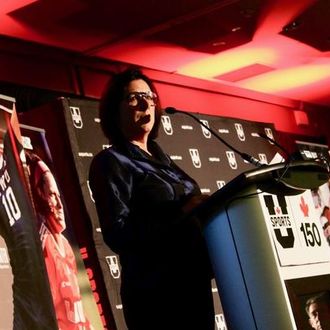The third and final day of the conference portion featured keynotespeaker Thomas Hall from the Canadian Olympic Committee (COC). In his current role, Hall Serves as National Manager of Game Plan.
Hall’s presentation titled Preparing Student Athletes for Life After Sport, focused on promoting athlete wellness - how to treat athletes with respect to their physical and mental health, and providing them a transition plan following their careers.
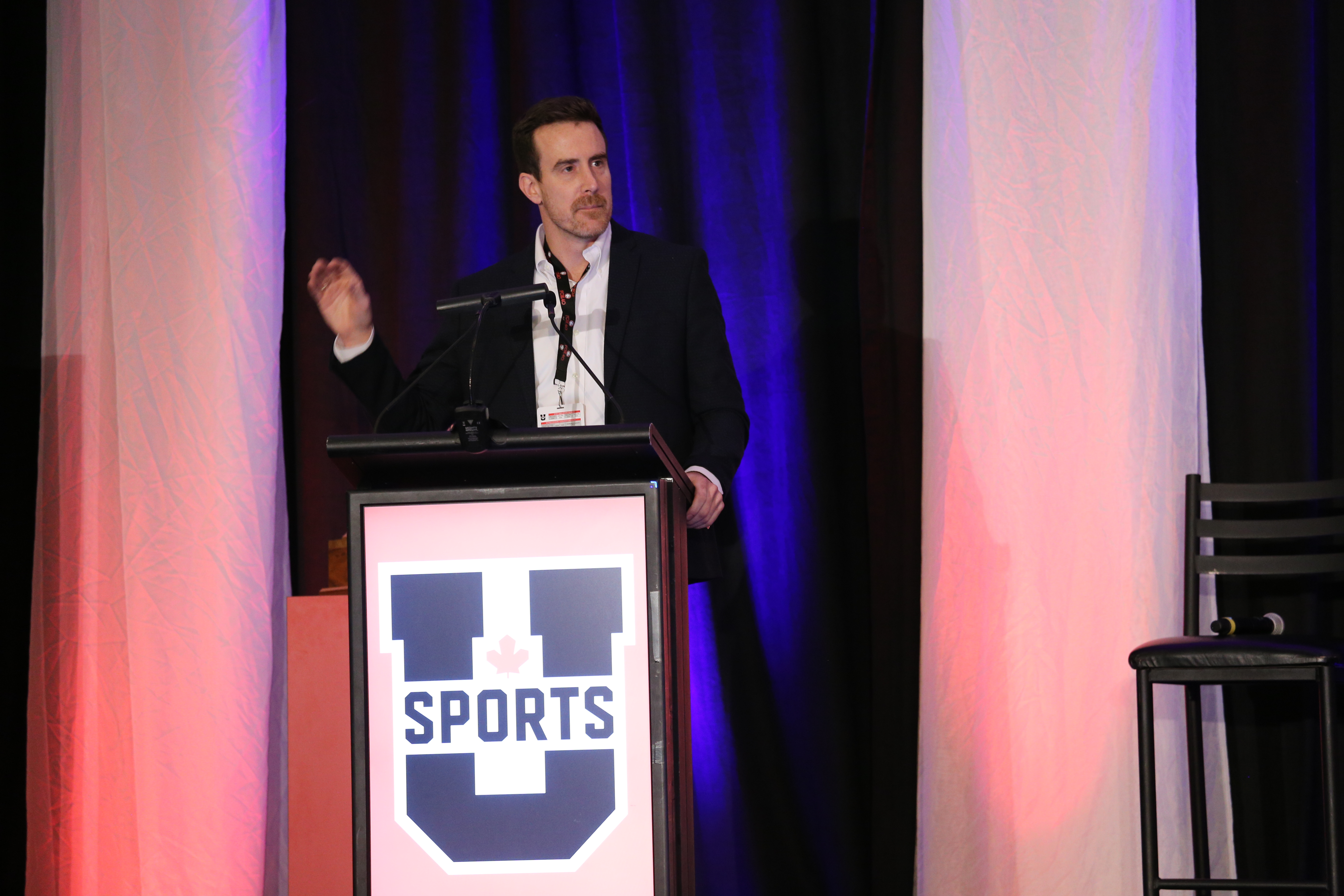
“Part of athlete wellness is changing how we perceive athletes and how we treat athletes,” said Hall. “Currently, in the Canadian sport system at large, we treat athletes as a special category, and by treating them as special, we make them vulnerable…people's lives are at stake, if we don't actually fundamentally change how we're doing this."
The membership also heard from Mitch Thompson, who delivered key updates on the ongoing work of IMG to build and execute a national sponsorship strategy for university sports in Canada. In addition to aggregating rights across the U SPORTS network, IMG is also developing sponsorship opportunities for U SPORTS and conference championships, as well as member school assets including recreation centres, intramural programs and varsity sports.
“We can’t at the national office with IMG and U SPORTS operate in isolation for any of this,” said Thompson. “We have to always be engaging the broader network, whether that’s conferences, universities, host committees…there’s that constant layer of stakeholder engagement that’s a part of this whole spectacle.”
In U SPORTS Presentations, details and updates on the organization’s new Transgender Policy announced in September was led by a panel discussion of Dr.Debra Kriger and Beth Ali (University of Toronto), Danika Smith (University of Ottawa) and Martine Leblanc (Université de Montréal). The Policy, which permits student-athletes to participate in U SPORTS competition based on the gender as which they identify, is among the most progressive and inclusive transgender policies in high-level sport.
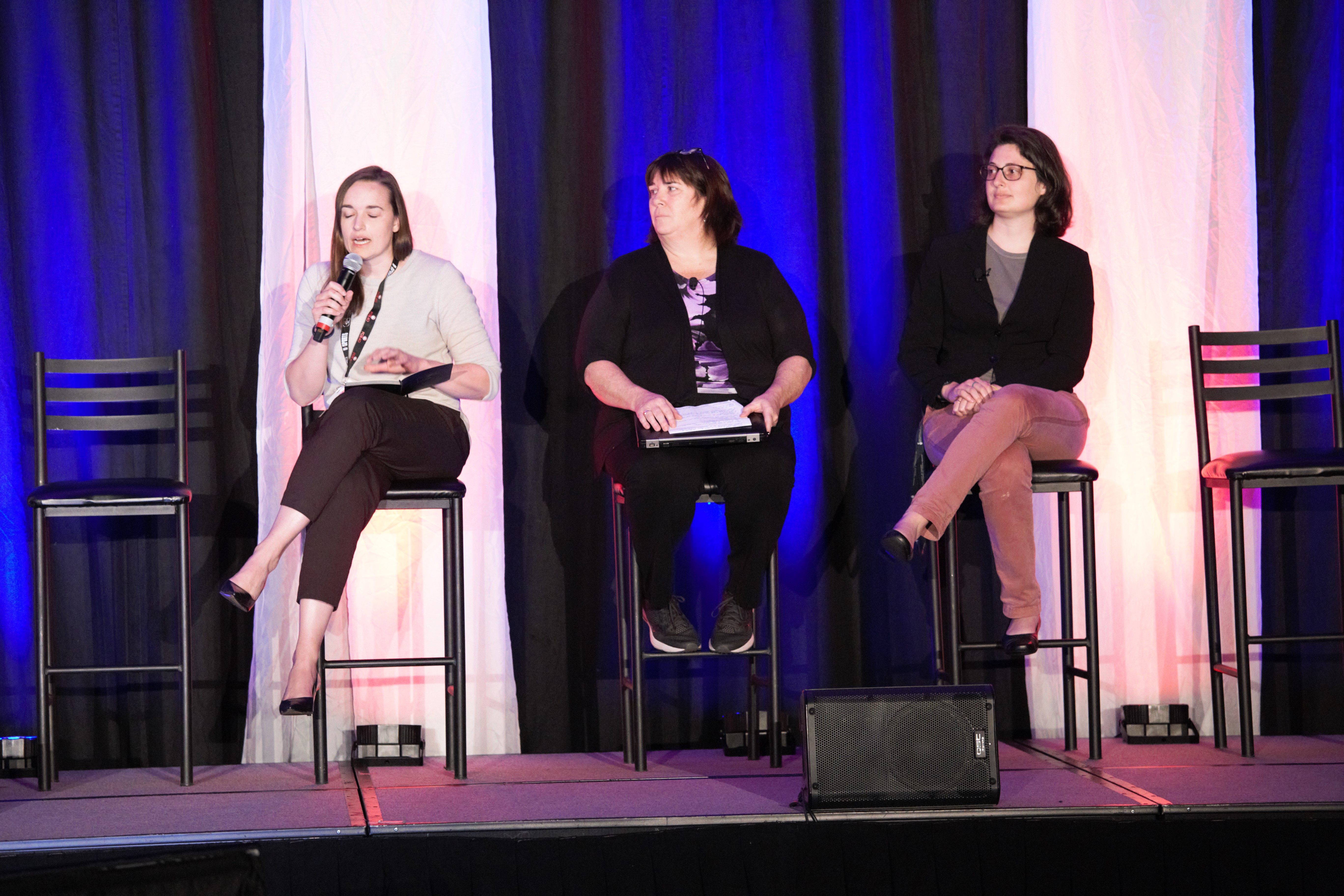
"Their world is full of doors and barriers,” said Ali, U of T’s Executive Director of Co-Curricular Athletics and Physical Activity Programs.“They need a place where they can feel like a varsity athlete...or a participant in one of our programs."
Additional U SPORTS presentations included breakouts on Athletic Financial Award policies and National Championship principles (formats, berth and seeding, ranking systems), as well as updates on the current landscape of national statistics.
The festivities wrap up on Thursday with the Annual Meeting of the membership.
As the week drew to a close, two final keynote speakers headlined Thursday’s Annual Meeting proceedings, beginning with Dr. Greg Wells opening the 2019 Annual Meeting of the membership.
Wells, a health and Performance Physiologist and Best-Selling Author has dedicated his career to making the science of human limits understandable and actionable by working with some of the highest-performing individuals on the planet including Olympic and World champions.
Wells spoke about the five keys to building healthy high-performance teams, including clarity of vision, psychological safety, dependability, meaning and impact, adding these factors also positively contribute to one’s mental health.
“When teams have absolute clarity of vision, then sport departments within universities have absolute clarity of vision,” said Dr. Wells in reference to one of the five keys. “And they're going to achieve great things and unlock new possibilities.”
The final guest speaker of the event was Alberto Ruiz Luca de Tena, founder of Angles in Sport, who led the members in an activity called the Napkin Exercise. The activity featured a self-reflection of eight questions and one piece of paper and pen for each delegate, unfolding the value chain in sport as well as three themes for leadership in sport: leading organizations, leading others and leading self.
In the final U SPORTS presentation, President and CEO Graham Brown gave the members an update on the national office’s broadcast strategy, discussing The Future of Televised Canadian University Sports following the conclusion of recent six-year Sportsnet partnership. Brown reinforced the importance of U SPORTS competition continue to hav broadcast exposure.
“I still believe television is still a great vehicle for (U SPORTS) – it validates what we do,” said Brown. “Sport might be the last little frontier of television that really relies on live. Very few people will watch or get excited about a tape delay.”
The festivities on Thursday also featured the official Annual Meeting of all 56 members, as well as a U SPORTS Board of Directors meeting. Click here for a full recap.


